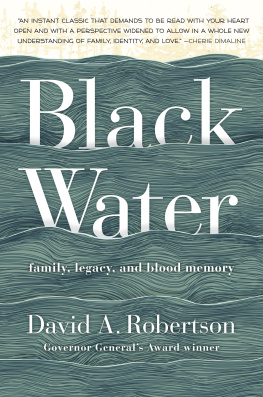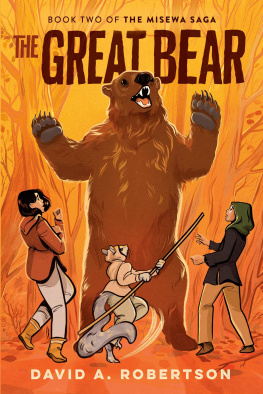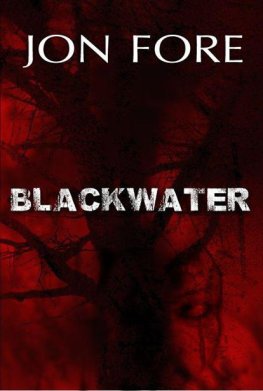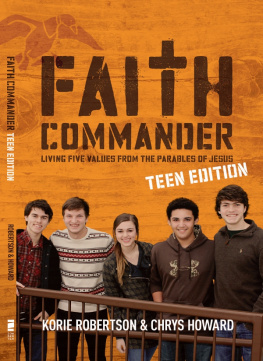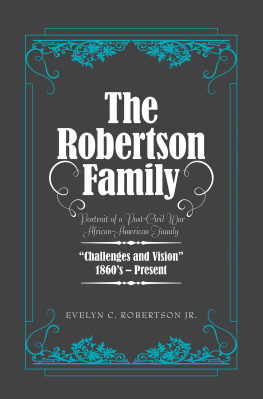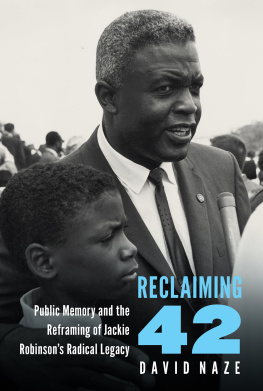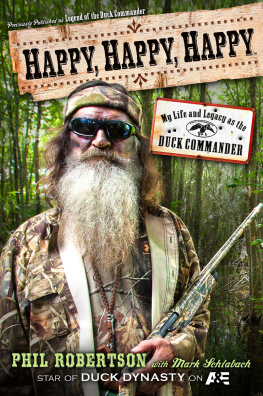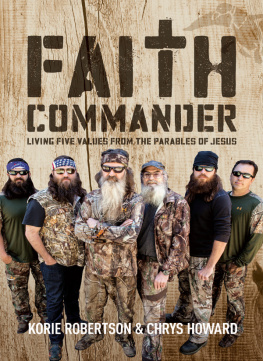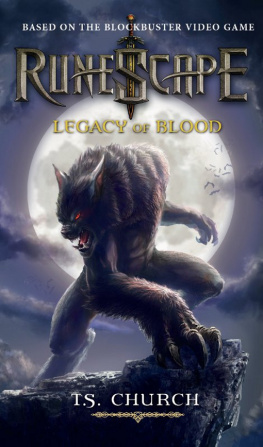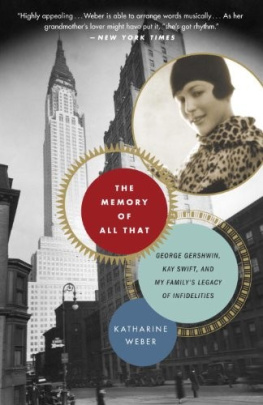David A. Robertson - Black Water, family, legacy and blood memory
Here you can read online David A. Robertson - Black Water, family, legacy and blood memory full text of the book (entire story) in english for free. Download pdf and epub, get meaning, cover and reviews about this ebook. year: 2020, publisher: HarperCollins Publishers, genre: Detective and thriller. Description of the work, (preface) as well as reviews are available. Best literature library LitArk.com created for fans of good reading and offers a wide selection of genres:
Romance novel
Science fiction
Adventure
Detective
Science
History
Home and family
Prose
Art
Politics
Computer
Non-fiction
Religion
Business
Children
Humor
Choose a favorite category and find really read worthwhile books. Enjoy immersion in the world of imagination, feel the emotions of the characters or learn something new for yourself, make an fascinating discovery.
- Book:Black Water, family, legacy and blood memory
- Author:
- Publisher:HarperCollins Publishers
- Genre:
- Year:2020
- Rating:4 / 5
- Favourites:Add to favourites
- Your mark:
- 80
- 1
- 2
- 3
- 4
- 5
Black Water, family, legacy and blood memory: summary, description and annotation
We offer to read an annotation, description, summary or preface (depends on what the author of the book "Black Water, family, legacy and blood memory" wrote himself). If you haven't found the necessary information about the book — write in the comments, we will try to find it.
Black Water, family, legacy and blood memory — read online for free the complete book (whole text) full work
Below is the text of the book, divided by pages. System saving the place of the last page read, allows you to conveniently read the book "Black Water, family, legacy and blood memory" online for free, without having to search again every time where you left off. Put a bookmark, and you can go to the page where you finished reading at any time.
Font size:
Interval:
Bookmark:

Scott B. Henderson
For Dad
: My father has spent a significant amount of time rememberingand through the act of remembering, reclaiming.
: The Robertson family home in River Heights, Winnipeg, circa 2018. The place where I grew up.
: Mom took this picture of me on our street in the summer of 1982. I was five.
: My second birthday, January 1979. Wed just moved to Brandon from Calgary and would move to Winnipeg within the year.
: Taken in 1932 on the steps of Norway House Indian Residential School. Nana, Sarah Captain, is on the far right, along with other graduates.
: Dad out front of his cabin at Thunderbird Bungalows in Wasagaming, Manitoba. One of his favourite places. Taken in 2016.
: One of the classes I visited in the library at Jack River School on February 23, 2018.
: Dads graduation picture from Union College, on the University of British Columbia campus. Taken on May 4, 1967. That summer, he moved to Melita.
: The Cook Christian Training School basketball team photo, taken in 1961. Dad is sixth from the right. The guy with the big smile.
: Mom and Dad were married on January 24, 1970. This was taken in Melita, Manitoba. Nobody made Dad smile like Mom, except his grandchildren.
: Dad gave countless workshops on Indigenous education and the role of grandparents in the lives of children. Here he is in 2014 at the Lighting the Fire conference in Winnipeg.
: Mom and Dad in the living room of my house in Winnipeg, 2018. Dad could always make Mom laugh this hard, but I notice more how he used to look at her.
: In 2000, I visited Norway House for the first time. Me, Mike, Dad, and Cam. Were standing out front of James Evans Memorial United Church.
: The moment we stepped onto Black Water in the summer of 2018. Dads using the walking stick I found for him as he makes his way home.
: My dear friend Julie Flett took this photo of me and Dad in 2017, during the tour for the Governor Generals Awards. Wed just got off the bus and were waiting to go inside the Centre Block on Parliament Hill.
: In 2019, Jill and I took our kids to Black Water to see where their grandfather grew up.
: We visited Dad on his birthday, May 18, 2019. He turned eighty-four. He always tried to shoo me away, but I think he liked it when I cuddled him.
: Donald (Dulas) Alexander Robertson. Taken while on the way to Black Water in 2018.

D ad and I are sitting at a caf by my work. Hes ordered an Earl Grey tea with some sweetener. I have a decaf coffee splashed with almond milk. Im facing Dad and a mirror, and I trade glances between him and my reflection, wondering where the years have gone. Im growing my hair out, and all I can see are the grey strands. I tease my wife, Jill (who is Mtis), that Im aiming for a man bun, but really I think Im trying to connect with something that Ive been working hard to understand since I was in my late teens. That is, what it means to be Cree. I guess I feel as if long hair would make me more Indigenous. Growing up, I had this vision of what an Indian is, and like it or not, that vision, despite all the work Ive done, has stayed with me. In reality, a lot of my Indigenous friends have braided hair and a lot have short hair. Its a good thing my hair grows so damn slow; Ive got time to figure out if Im bugging Jill or trying to be cultural.
Thats the thing about journeys: theyre never really over. Ill probably be doing this when Im Dads age. Maybe I wont be deconstructing the reasons why Im growing out my hair, but it will have something to do with identity. It will have something to do with what it means to be Cree.
My dad is Donald Alexander RobertsonDulas, to those in our home community, Norway House Cree Nation. Hes got an easy way about him, always has, but its nothing to do with his eighty-two years. Everything he does is purposeful and measured. For a middle-aged guy living with anxiety, I find comfort in the way he exudes calmness. Its in the way he talks; Dad says something only when he believes he has something important to say. Hes thoughtful and deliberate. Ive learned to be patient in speaking with him, to watch his eyes, which are smaller than they appear behind prescription lenses, while they search for the right words. And then to listen carefully, because he wont repeat himself. Ive learned through practice, because conversations with Dad arent new. Weve been at it for a while, and often have sprawling discussions that somehow lead us into a better recognition of ourselves. The caf is a frequent setting for our talks, but they dont exclusively occur heretheres also the golf course, the car, Mom and Dads house, a restaurant both of us can eat at (Im vegan, and hes got no large intestine), or before the lights dim in a movie theatre.
At the caf, Dad gives me most of his attention, except when a friend walks by, which isnt uncommon. He used to run the place I work at now, the Manitoba First Nations Education Resource Centre (MFNERC), in the early 2000s and still knows people there. He likes to have coffee with me, then see his pals. He roams the hallways with his easy stride and seeks people out. Hes got a laugh that echoes through the buildingyou know when hes aroundand its infectious. People say that Dad and I have the same laugh. People say that Dad and I have the same walk. If you looked quickly at a picture of Dads basketball team at Cook Christian Training School in the mid-1950s, youd think that Id pulled a Marty McFly and was standing there in his place. I like that we have these similarities.
Weve been having these conversations for almost thirty years. Ill ask Dad a question about his life, referencing any period between 1935, the year of his birth, and now. Hell think about it over a sip of Earl Grey tea, then respond. Itll be either the most thoughtful answer you can imagine, one that feels as though hes prepared for it (and he very likely has), or utterly dismissive, disappointing, because I want to know more, because I expect more or at least something different.
You know, he said to me recently, you cant tell my story from my perspective. This is your story, even if its about me. It has to be that way.
His story. My story. Im not sure its that simple. Its our story, and whether its about a time in his life or a time in mine, what I wantwhat Ive always wantedis to figure out how his life, my life, and our relationship have shaped who I am.
Time has moved quickly for me as well as for Dad. I notice this when we talk. Sometimes it feels like looking at him is another sort of mirror altogether. Not just because we walk the same or laugh the same. I see in him things I want to be at the age of eighty-two, and things I do not want to be, because of the choices I think he made and how they affected meeven though I cant, even though I wouldnt, change what has happened. Thats confusing for me, but its a reality Ive come to accept, even embrace. From what I understand, Dad, a broad-shouldered, tall Cree, and Mom, English, Irish, and Scottish, with a beautiful smile and flowing brown hair, chose not to raise me and my brothers as Cree to keep us from the difficulties they thought we might face growing up in Winnipeg as First Nations kids. I dont think Cam and Mike even knew they were IndigenousI certainly didnt, and we never talked about it. Not with Mom and Dad, not with each other.
What do you regret most? I once asked Dad in the car on the way home from an afternoon at our local golf course.
Font size:
Interval:
Bookmark:
Similar books «Black Water, family, legacy and blood memory»
Look at similar books to Black Water, family, legacy and blood memory. We have selected literature similar in name and meaning in the hope of providing readers with more options to find new, interesting, not yet read works.
Discussion, reviews of the book Black Water, family, legacy and blood memory and just readers' own opinions. Leave your comments, write what you think about the work, its meaning or the main characters. Specify what exactly you liked and what you didn't like, and why you think so.

